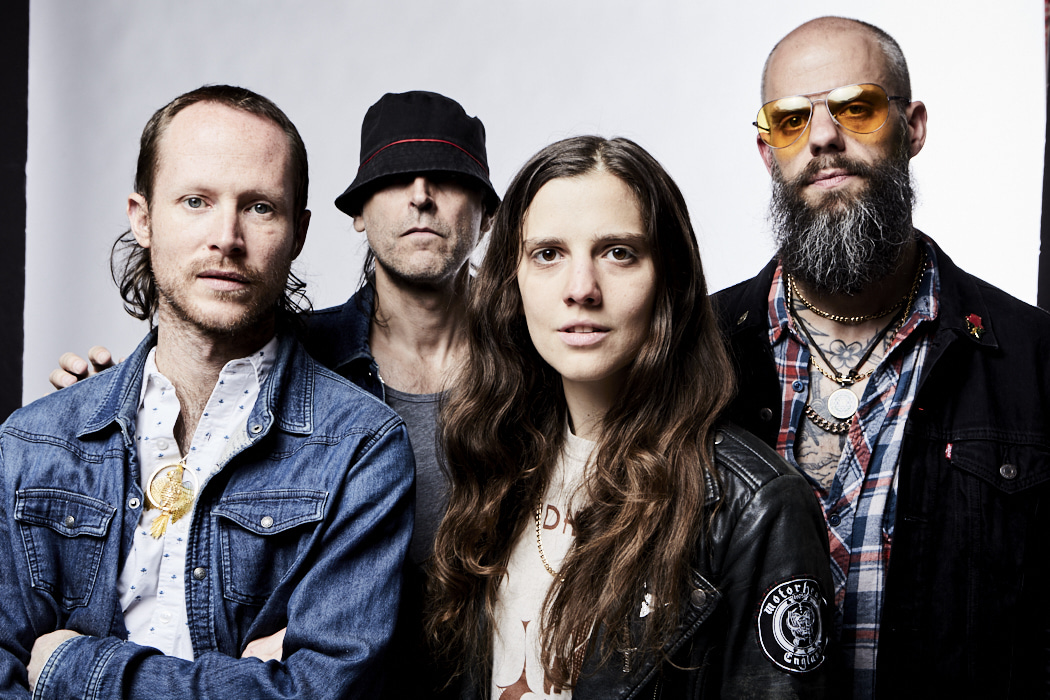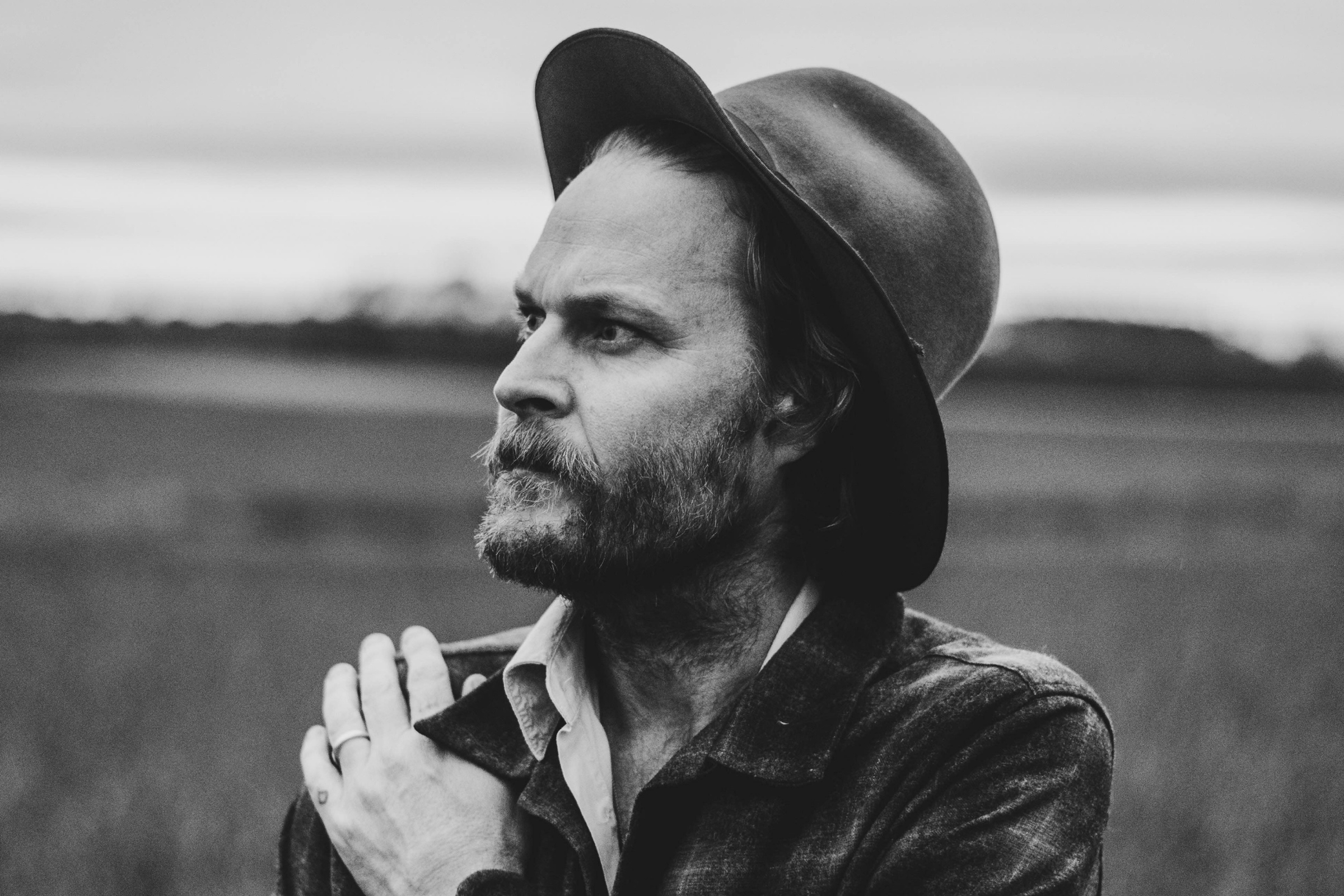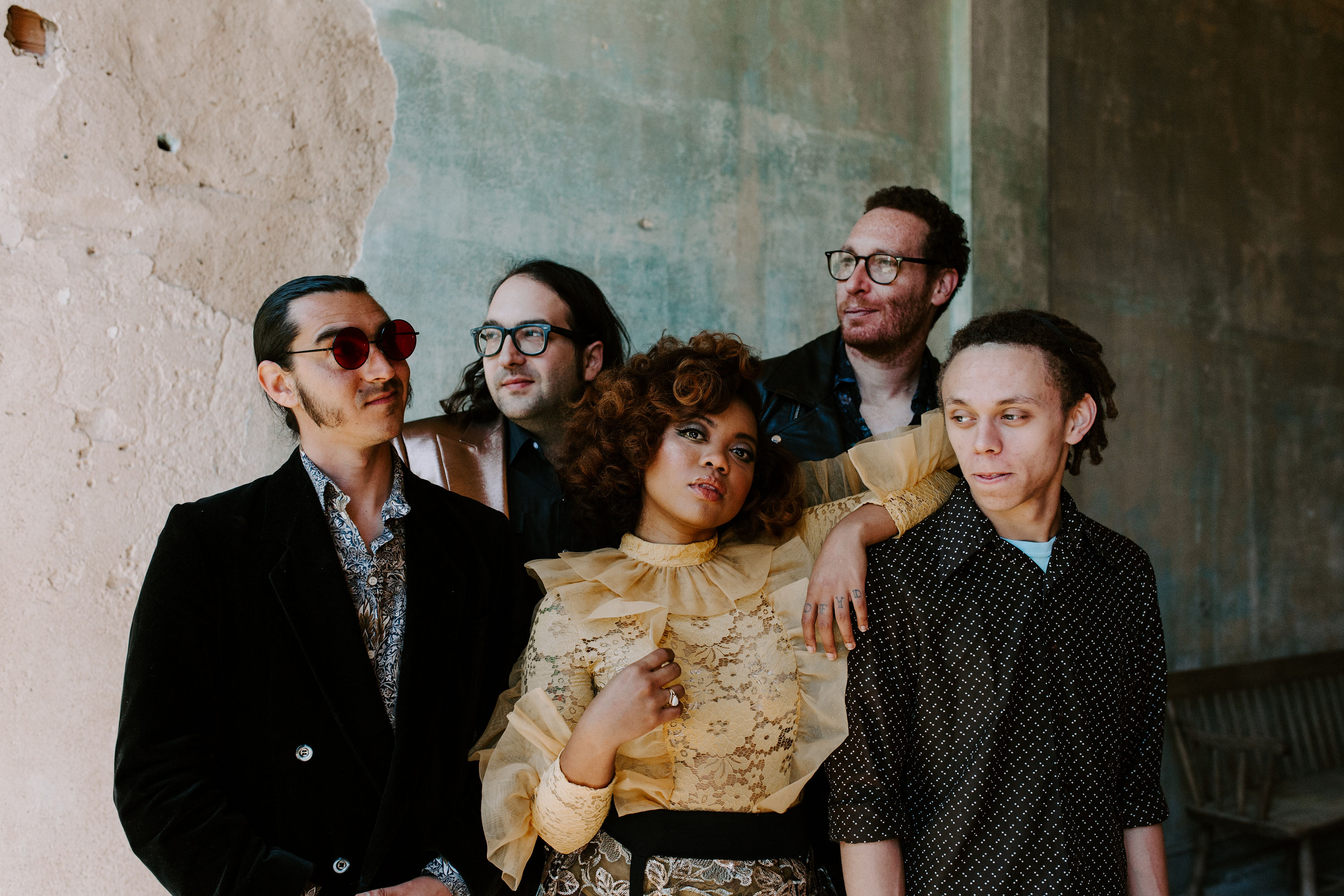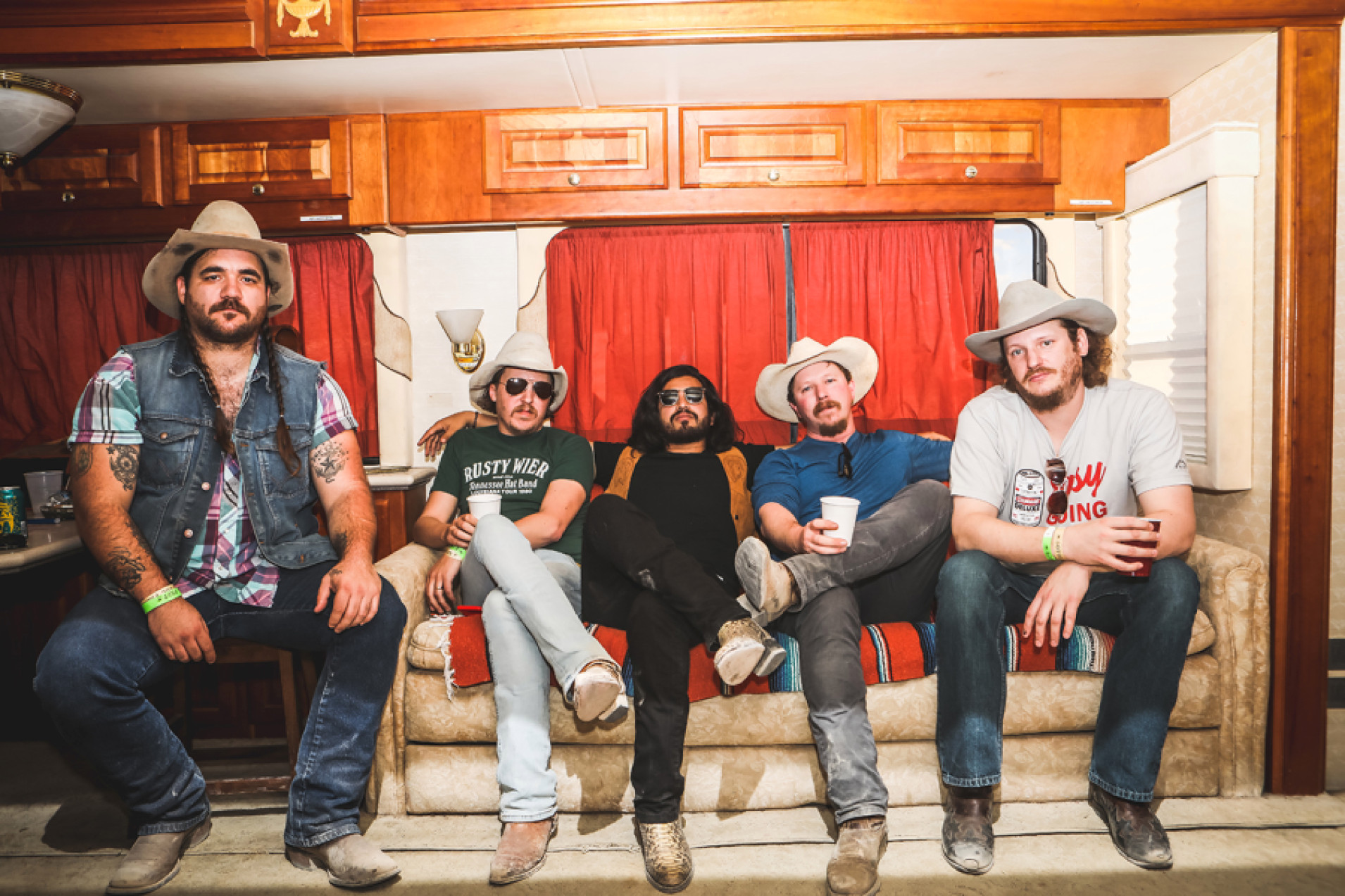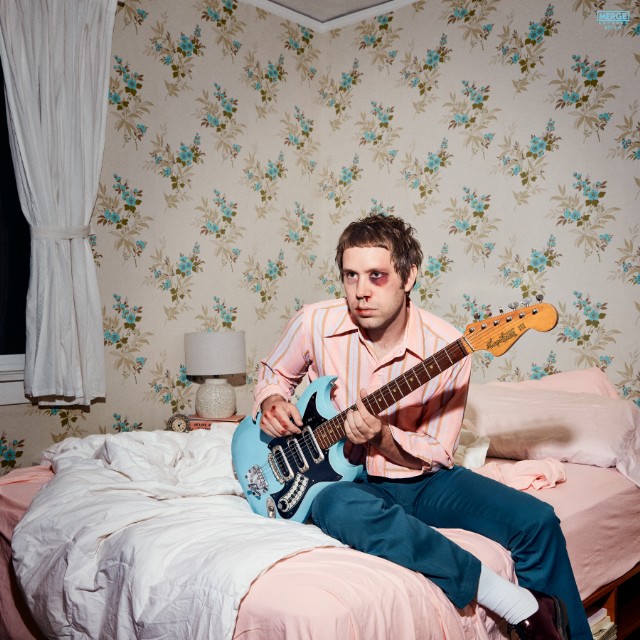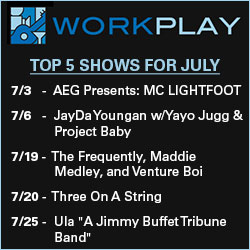Baroness makes its first stop in Birmingham on Wednesday
Baroness has, somehow, never been to Birmingham. Well, they were once. Their bus stopped here as it was passing through to head to Atlanta. Lead singer John Baizley remembers that. The band is still from Savannah, Georgia by default, and Baizley is the only remaining original member. He spent much of his youth in the Appalachians of Virginia and in Savannah, and that somehow managed to influence his brand of metal.
Gold & Grey is the band’s fifth album, each named for colors. It’s the first to feature Gina Gleason on guitar.
Ahead of the stop, Baizley talked about the unlikely way that bluegrass music influenced him. He recalled the DIY scene of Savannah, and more broadly, the thing that was happening in music in Georgia in the mid-aughts.
How much did your Georgia upbringing and your Virginia upbringing inform your sound?
That’s actually a good question. No one has ever put it that way; you said Virginia, too. I think it obviously impacted the style to a large degree. But I don’t think that it happened in a way that we were ever conscious of or even remotely aware of. We’re in the seventh lineup right now; maybe the sixth, I don’t know. The first four lineups that we had, every single one of the members was from somewhere in the county that I grew up in, and I grew up in a part of the U.S. where you tell people what county you’re from instead of what city. I think one of the important things to note about that part of the country is that’s where bluegrass was from. That’s where certain types of folk and, I guess now, what certain types of Americana were just normal music that people played; there wasn’t a name for it; it wasn’t a hip thing to do. It’s a thing that a lot of people in the country did – you’d go out to somebody’s party – there’d be moonshine, there’d be a bluegrass band, there’d be a bunch of cars parked around a barn with a little kerosene generator and that was the vibe of a lot of places I would go when I was a kid.
There were a lot of people that played bluegrass. And I tried my hand at it once or twice. At certain bluegrass circles I could sit in, but the style itself never suited me. Tim Loose, who was probably the most metal guitar player that we had but also the one that we had that was actually raised on bluegrass, and our third guitar player, Pete [Adams], basically had the same thing. What I would always do throughout the history of this band is take what the guitar players that I have played with are good at and I convince them to adjust that technique in a way that makes it work for Baroness. Maybe even more than that is that underneath all of our songs – very frequently, our songs are written on acoustic – and I’m a fan of old 60s and 70s country – I took that kind of stuff and it worked its way into our music. It’s in a subtle way, but it’s there. I’ve come to learn over the years that we favor a few chord progressions that if you took the way I played off and the embellishments off and the drums out of it, I think you’d recognize them as pretty basic country chord progressions. It’s weird to say that because I do not think that’s the dominant thing happening in our style. When new guitar players have joined the band – and if I have to explain why we do something the way that we do – I always show people how the songs work without all the articulate, precise guitar playing. Underneath it all, it’s a very strummable thing sometimes; the vast majority of them are simple country songs. I never intended to do that. It’s not something that I wanted to do, but it is sort of the way it happened.
The regional sounds of Georgia and Virginia have infiltrated our sound. The sound of Baroness has always been something sponge-like. I absorb the experiences I’ve had and the music that I’ve listened to and I’m never interested in playing it the way that I’ve heard it. But I’ve always believed that you have to keep your ears open to not only the music you like, but also the music you dislike; you should be able to know why you do or do not like something.
What were some of those older country acts that you were listening to when you were younger?
I don’t know that they influenced me when I was that much younger. Where I grew up was kind of the home of bluegrass. I guess Kentucky claims it, but they’re only an hour away from us. We were in the same mountain range. I grew up in the Appalachians. I wasn’t a great musician when I was a kid, which is why I always say Nirvana. Because when I was 12 or 11 or something – and I had been playing guitar for a couple of years, but I didn’t know how to play. I was teaching myself. When I saw Nirvana play “Smells Like Teen Spirit,” the day that video premiered, I finally figured out that there was a band – they said to me, “Hey, John, you can play music, too.”
With bluegrass and what we now call Americana and folk, there’s a lot of traditionals. Who knows who wrote them? But much like with jazz, in order to sit in on a bluegrass circle, you have to know 30 songs. And those are songs that everybody knows. It was a lot of traditionals and standards. I did always have a soft spot for sad, old country. I remember one of the first records that blew my mind was Red Headed Stranger by Willie Nelson. I knew all the hits at that point, but when I was 11 or 12 and I got that record, that may have been the first concept record that I ever heard. It’s sad and it’s beautiful and it’s strange. It’s very jazz influenced. There’s something mysterious about the way that the music was presented anyway. Nearly 30 years ago, I was listening to that, and still when I’m performing live (solo and duo shows), we still perform “Blue Eyes Crying in the Rain.” That was a Willie song that I really loved.
I was a little bit into the outlaw thing – things like Merle Haggard. I liked a lot of female singers; sad, slower, singer-songwriters. Conway Twitty was doing songs I loved; I loved Lee Hazlewood. Emmylou Harris; “Boulder to Birmingham,” songs like that completely blew my mind when I was a kid. I was a punk. I liked progressive, angry, depressing music, but I also liked old country because the anger was gone. It was very sad, very earnest, very heartfelt. That era of country had a huge impact on me and continues to; there’s so much in the composition of the songs that I admire. There’s so much feeling and heart in the way they’re delivered. They sing with as much heart and soul as you possibly can.
I’m positive that isn’t my entire band’s history with music. I’m pretty sure two of these guys hate country music. But I’m the guitar player and it was something that was equally important for my guitar playing. The structure of songs written in that era by people like Emmylou Harris and like Willie Nelson – I thought they were really cool. They were really simple, but they was something dynamic and vibrant and sort of interesting in the way they would combine a very finite number of chords to create a song. Of course, when I was 15, my thought wasn’t that articulate at all. But now that I’m talking about it, that may have been as important as the bazillion other things that were also influences.
How much, if any, did the other hard rock and metal bands in the scene that also happen to be Southern have on you? Did the national success of a band like Mastodon have any affect on your band?
It’d be hard to deny that for the crop of fans that existed and were active in the 2003-2008 – that was a particularly vibrant half a decade there, where, in Georgia specifically, there was something happening. There was definitely something happening. It was a confluence of a bunch of different factors. We and Kylesa and Black Tusk had a very small scene in Savannah. And Atlanta was, like, five hours away from us. It was distant enough that it’d didn’t have a very direct influence on us, with the exception of Mastodon.
Somebody should put this timeline together. I don’t know who came first. And we all came from different bands. There were a couple of pre-Kylesa bands; there were a couple of pre-Mastodon bands. In Savannah, there was a band called Damad that was basically most of Kylesa. They and a band that was only in Savannah because of the art school called Circle Takes the Square – sort of predated everybody by a year or two. And in the sound of those two Savannah bands was the template for everything that came after. When I came to Savannah, I had been traveling and living all over the country. I had become pretty disillusioned with music. When I first saw a Kylesa show, I started Baroness the next day. At the same time that was happening, I was sort of getting into metal. Until I was 20, I really only liked punk rock and sort of outsider, weirdo music. Then I started buzzing and growing with metal around the turn of the millennium. I was reading in Terrorizer magazine about Mastodon, and they just happened to be playing in Savannah. That was very odd, because nobody played there. Nobody toured through Savannah. The only bands that did were the bands that we booked. Even at the club level, there were really only two clubs. There was a DIY space that a guy who would become our roadie – now, he’s a very well known album cover artist, Jeremy Clark – he ran the DIY space 2424. And then there was The Jinx. The fire marshal would only allow 105 people in there, and we regularly put 200 people in there. It was small, it was packed, it was dense, it was only active by virtue of the fact that the handful of musicians in that town had great taste in music and booked all of these shows. We realized very quickly that when that happens – when you have a scene like that happening – somebody gets plucked really quickly from it and elevated. And we watched Mastodon rising. Obviously, because it was the sickest live show you’d ever seen. And whatever good happened for Mastodon had a reflective effect on us and everybody else. People were starting to take this scene that was happening in Georgia very seriously.
It may not have been the case with them in Atlanta, but in Savannah, because we had no touring bands, because we had no big venues, we didn’t have an influx of popular music in any style coming through. It wasn’t like there were hardcore shows happening. It wasn’t like there were pop shows or indie shows or whatever coming through very often. We really had to work to get anybody to come to that town and not go to Atlanta or Jacksonville or Charleston, which were all a triangular distance from us and a better place to play shows. So we all developed these really unique styles. I think that healthy competition between those of us that were active – we were trying to be louder than each other, but we were also trying to develop this kind of heavy, psychedelic, punk-infused metal thing; and it had everything to do with volume and effects. It was this weirdly pure, artistic endeavor that everybody was in on, but nobody really sounded like anybody else. We were the only bands we saw on a regular basis, so we all influenced each other. Our sounds kept getting weirder and more unique. That’s why people now associate that time period with a Savannah sound. You’d go to other cities and you wouldn’t see that. You’d go down to Gainesville and you’d just see punk. You’d go to Atlanta and you’d just see metal. People would come to Savannah and they’d just see weird.
We lived in a tourist town, so everybody works in a restaurant. Everybody you knew in a band or everybody that was at your show was a chef. The cool thing was, and the weird thing was, we didn’t know how things worked anywhere else. Even as we started touring, we were a DIY band. We were playing houses; whatever dive bar was stupid enough to let a punk kid throw a show there. VFW halls. You name it. That’s all we did. When we started playing clubs, they’d have a stage and a PA. And there was a sound guy there – that was a weird, weird thing. Every show was the exact same 200 people. The only thing that changed was who was on stage.
Being in a DIY scene in a rural community, you really start without any goals. Whatever the DIY thing is that you’re doing, you’re making it up as you go. You’re completely faking it until it works. In Savannah, I found a bigger scene of people who felt like that. Our shows were weird in Savannah. You call what you get paid a guarantee, and I always thought that was a joke. Until we got an agent, management – until we grew and had to hire people – I thought a guarantee was meant as a joke. It was just a number you were a given and you were guaranteed not to get. I thought it was hilarious as we got older to think, “Why would you tour with a sound guy? What would that do? Why wouldn’t you print your own merch? We can all silk screen can’t we? Why wouldn’t you book your own tour?” That’s changed. Because of where I grew up in Savannah, we didn’t [expletive] around with having management. There was a label in town that put out the first couple of Baroness EPs. These were friends. Everything was done with everybody else. I try to hang on to that as we grow and apply what can be applied to the level we play now.
Do you miss those types of DIY shows and rooms? You joke of a guarantee – there was no guarantee of who’d be on the bill. There’d be a lot of genres. You’d be thrown out there with a hip-hop act or whatever else may be in town. Do you miss playing on that type of bill?
Yeah. It was exciting. It was predictably unpredictable. Insane things happened all the time, and we pulled off these great feats that we didn’t think we could. It was fresh, and we were young and we were hungry. I miss that in a way that I miss being in high school and falling for a girl and not knowing what to do about it. That’s only to say that I don’t feel like I’ve lost that. If I want to be involved in the DIY scene, there still is one. I just can’t be the band. But I still support DIY shows; it’s still a very active part of my musical diet.
I started playing music because that’s where all the freaks and the weirdos and the kids who weren’t cool and didn’t know where they belonged – that’s still where those kids end up. That’s not something I necessarily outgrew. When I got older, it was all the more reason to stay in music because this is the place where I don’t feel like a complete stranger. The rest of the world feels so alienating to me at times.
But I have to counter that by saying that things are not less crazy now, and we still pull off insane feats. As many lineup changes have happened, I still make sure that the musicians that I’m playing with – and I finally feel like we’re in a stable lineup as a band. Everybody has had similar experiences; maybe not in Savannah, maybe not my particular background, but we still act the same way we did when we were younger. I still think it’s critically important that we engage with our fans more than just on the stage; that we meet them afterwards, talk to people, hang out with people. Whenever possible, demystify that extremely strange sense of – there being four people onstage, louder than anybody else, loud because we have microphones – somehow being more important than the audience.
We were outside of Chicago and there was incredible energy. People were singing all of the words, and there were a couple of people crying in the audience. We were playing our sadder stuff. It was a strange one – because Baroness circle pits are strange – but there was a circular pit type of thing full of people trying to figure out how that works in the context of Baroness. I love that. We see that. People crowd surf and try to get onstage; things like that. It’s cool how that’s still a thing. Our shows can be technically perfect – they almost never are – if our audience doesn’t give and reflect, then the show sucks. But we play scrappy and full of mistakes and the audience is matching that. It’s a circuit. There’s this energy circuit, and that starts onstage. We play music that affects the crowd, they get energized and start moving around. We see that. That drives us harder. That drives them harder. It keeps going around and around. That’s still how I gage shows.
I got into this for many reasons, but one of the most appealing things about this profession is that the environment always changes. It’s extremely dynamic. Nothing ever goes perfectly. It’s just like the DIY days; problem solving from the time you wake up until the last note is played and everything is packed up and you’re in your vehicle and heading to the next town. That’s an important part that bands should recognize. None of that happens unless you’ve got an excited audience. I like for the relationship that we have with our audience to be a personal one. It’s not casual. I don’t want the trappings of what minor celebrity that we might ever achieve to convince them that we don’t talk to them anymore. It certainly gets harder as you get bigger because there’s more people and the shows are more complex and making records is a bigger deal; but at the end of the day, it’s a team of people that do everything. It’s not just me. It’s not just the band. It’s the crew. It’s all the people that set everything up. And it’s the audience. The fans are number one. We’re a live band. We’re playing music for people. Music is best played in front of an audience, and when that audience feels like a part of the show as opposed to the people receiving the show, it gets magical. I don’t have a better word for it. It’s hard to describe how intense that feeling is. It’s even harder for me to explain how amazing it is to still have that feeling just as I did when I was younger. Nothing changed. It’s always felt the same to me. I’ve seen so many musicians that get jaded. They get over it. They get too used to bigger audiences, which can feel less like a collection and more like a mass of people.
There are marquee stadium fillers out there that lose touch. They stop listening to new music. They stop talking to their audience. They stop shaking hands. I think that’s [expletive]. It’s what I hate about the music industry. But as we grow, we’re entangled in it. The least we can do is put in a little extra work and stay true to where we started.
Baroness comes to Saturn on Wednesday, July 31. Doors open at 7 p.m., and the show begins at 8 p.m. Pallbearer opens. Tickets are $25.
Blake is a freelance writer. His work has been published at AL.com, Birmingham Post-Herald, Birmingham News, Weld: Birmingham's Newspaper, Birmingham Magazine, Good Grit, Leeds Tribune and Over the Mountain Journal among many others. Blake has served The Literacy Council of Central Alabama, where he was a past chair. He also served Alzheimer’s of Central Alabama and the Alabama Symphony Orchestra. He is a proud alumnus of Auburn University and was raised in Rogersville, Alabama, but he currently resides in Birmingham. Follow him @blakeells.


